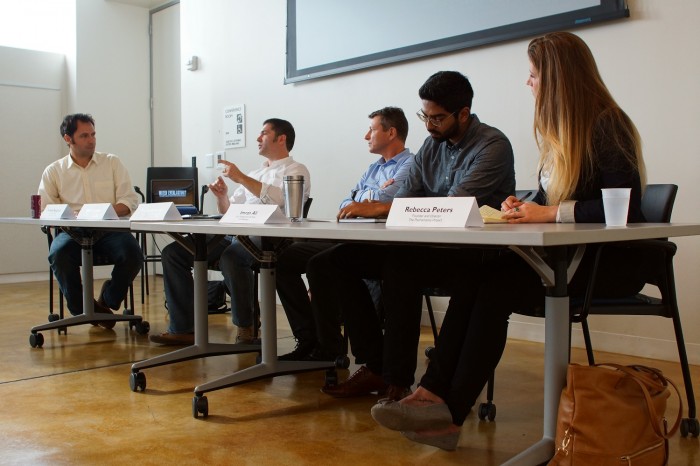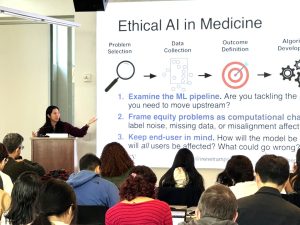By: Abby Madan, 2nd Year Political Economy Major

April 1, 2014 – On March 10th, the Inter-American Development Bank (IDB), UC Berkeley’s Blum Center for Developing Economies, and the Berkeley Water Group hosted a screening of Water Everlasting?, a documentary produced by the IDB that details issues of poor water administration in Haiti. The screening was followed by a panel discussion led by IDB representatives from Haiti and water experts from the Blum Center, and gave rise to important dialogue regarding ways to address water issues in Haiti.
As the poorest nation in the Western hemisphere, Haiti’s water and sanitation has been marred by chronic underfunding, leaving millions without access to a clean and reliable water source. The IDB, in collaboration with the Spanish government, has provided an $86 million dollar grant that aims to enable Haitians to build and maintain a sustainable water administration system that reaches its entire population. The Haitian government agency DINEPA (Direction Nationale de l’Eau Potable et de l’Assainissement) is using this grant to build necessary infrastructure to create water sector reform through institutional capacity building.
The IDB’s effort to strengthen DINEPA’s initiatives is a step in the right direction, as it aims to strengthen existing state agencies instead of privatizing the supply of water. According to Water Everlasting, approximately 70% of Port-au-Prince’s population of 3 million now gets their water from DINEPA kiosks located throughout the city.
In a discussion moderated by Fermin Reygadas, Executive Director of Fundacion Cantaro Azul and UC Berkeley PhD candidate, a panel of experts considered aspects of water issues that took the audience beyond the documentary. The panel included Thierry Delaunay, Water and Sanitation Specialist for IDB’s Haiti Country Office; Jose Irigoyen, IDB’s Haiti Country Coordinator; Imran Ali, Global Poverty and Practice Postdoctoral Scholar; and Rebecca Peters, Founder and Director of the Pachamama Project. Each of the panelists brought their respective insights on water issues in developing countries.
The dialogue included a discussion on important indicators for project success, as well as ways in which a human rights framework for water can be applied to economic cost recovery. When applying a human rights framework, the panelists engaged in a debate about the practicality in charging Haitians for water, a universally recognized public good. Peters, a 2012-2013 Big Ideas@Berkeley winner, shared the importance of gender equity in the water sector, emphasizing that women are disproportionally impacted.
The IDB’s Water Everlasting? viewings at universities around the country are helping to democratize development issues in Haiti by making them legible to the public. The events have created a public sphere conducive to valuable discussion and student involvement in this partnership. The screening at UC Berkeley was part of a West Coast series of screenings, with the final screening at the UCLA Blum Center on Poverty and Health in Latin America.
Since 2013, the Blum Center has supported a formal and robust partnership with the IDB. The Blum Center and the IDB co-host Demand Solutions, an annual gathering that brings together innovators to discuss and share solutions for addressing development issues in Latin American and the Caribbean. The partnership is also highlighted by the Berkeley-IDB Impact Evaluation Collaborative (BIC), which brings IDB representatives to UC Berkeley for executive training programs on the role of impact evaluation in policy-making. The IDB’s partnership with UC Berkeley marks the Bank’s first partnership with an American university.





